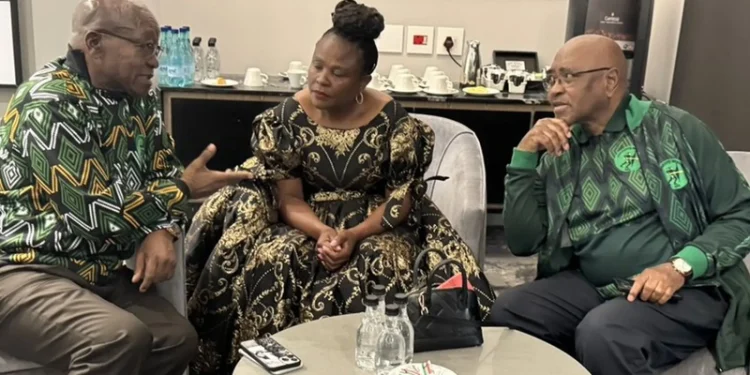Growing discontent within the uMkhonto weSizwe Party (MKP) has senior members raising concerns about the swift promotion of newly joined members into leadership roles. Long-time MKP members argue that these recent appointments undermine the party’s values of loyalty and internal democracy, fueling frustration among the ranks.
Veterans who have been part of the MKP since its inception claim that new recruits are being “parachuted” into key positions without adequate vetting, overlooking those who have dedicated years to the party. “We’ve been sidelined despite years of commitment to the cause,” said one anonymous veteran. “It’s disheartening to see new members who haven’t put in the same effort step into leadership. It goes against what we stand for.”
Formed as a political platform for former uMkhonto weSizwe veterans, the MKP has recently attracted a surge of members, especially individuals with past affiliations to other political groups. While this influx has increased the party’s influence, it has also led to tensions over how leadership positions are assigned. Responding to these concerns, the MKP leadership defended the appointments, emphasizing that the newcomers bring valuable experience and fresh perspectives critical to the party’s growth. A party spokesperson stated that the appointments align with MKP’s strategic vision to build a stronger leadership team.
“Every MKP member has the right to pursue leadership if they demonstrate commitment and ability,” the spokesperson explained. “These appointments are part of a broader strategy to position the party for long-term success.”
Despite these reassurances, the internal discontent raises concerns about MKP’s unity, especially with national elections approaching. Some insiders worry that this ongoing friction could lead to a division or reduced morale among veteran members. As MKP continues to expand its influence, addressing these internal tensions will be crucial to maintaining unity and focus on the party’s objectives. Whether leadership can address the concerns of disillusioned members remains uncertain.






















